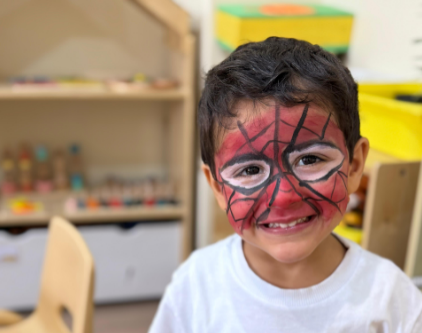Daily Habits That Destroy Your Child’s Independence

One of the most joyful moments for parents is watching their child try to eat on their own or reach out to put on their shoes by themselves. These attempts may look simple – or even messy- but in reality, they are major steps on the path to independence and building self-confidence.
Why should we let the child try?
In the early years, a child isn’t only learning words and numbers, but also learning how to see themselves. Every time they manage to lift a spoon or slip their foot into a shoe – even if the outcome is far from
perfect – they are actually gaining a deep sense of: “I can do it.” This feeling strengthens
psychological growth and gives the child the courage to try new things.
In addition, these attempts develop fine motor skills: holding tools, hand-eyecoordination,
and strengthening small muscles. These are not just daily skills, but the foundation for later
academic skills such as writing and drawing.
Independence or chaos?
Parents often wonder: how do I know if my child is truly practicing independence and not just making a mess?
The rule is simple:
- If the child is clearly focused – even with mistakes (the spoon spills, the shoes are on the wrong feet) → it’s independence in progress.
- If there is no clear goal and the attempt turns into scattering without real effort→ it’s just momentary chaos.
The difference is that the first needs encouragement and patience, while the second
can be gently redirected into a more organized activity.
How can we encourage independence without pressure?
- Prepare the tools: Provide child-friendly items (a small spoon, a plastic cup, shoes with easy openings).
- Allow time: Let them try on their own before stepping in. Rushing to help sends the opposite message: “You can’t do it.”
- Praise the attempt, not the outcome: Say, “Great job trying on your own,” instead of focusing on the spilled food.
- Accept the mess: Mess is not the enemy—it’s a natural part of the learning process.
A final message for parents
- Independence is not measured by how quickly a child masters a skill, but by their willingness to try.
Let them experiment, fail, and try again. These small attempts today are what will build their independent and confident personality tomorrow.


